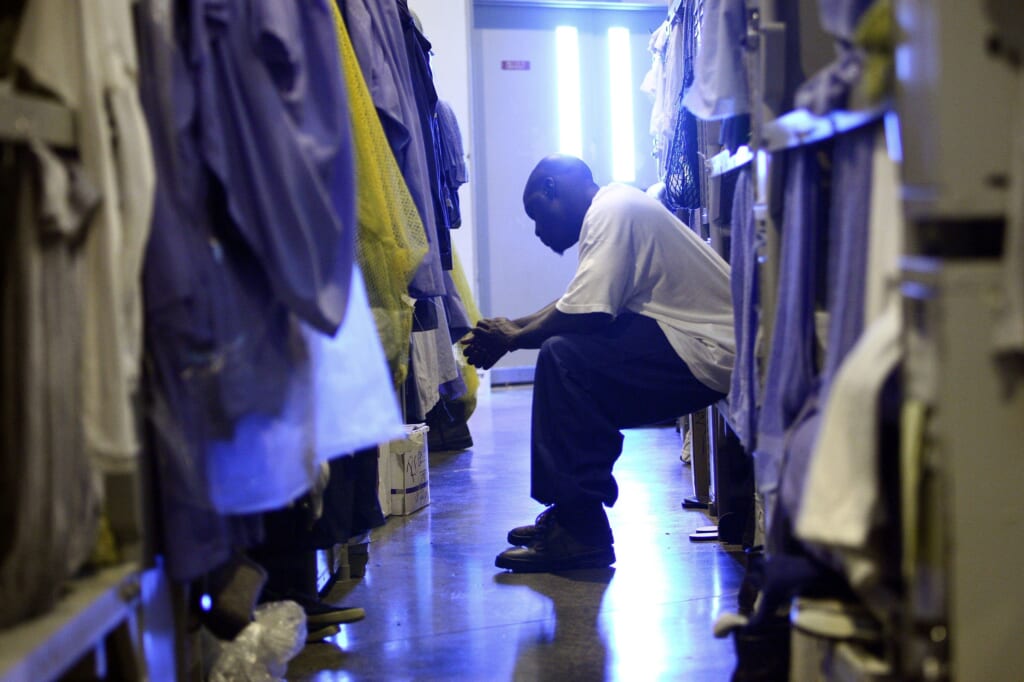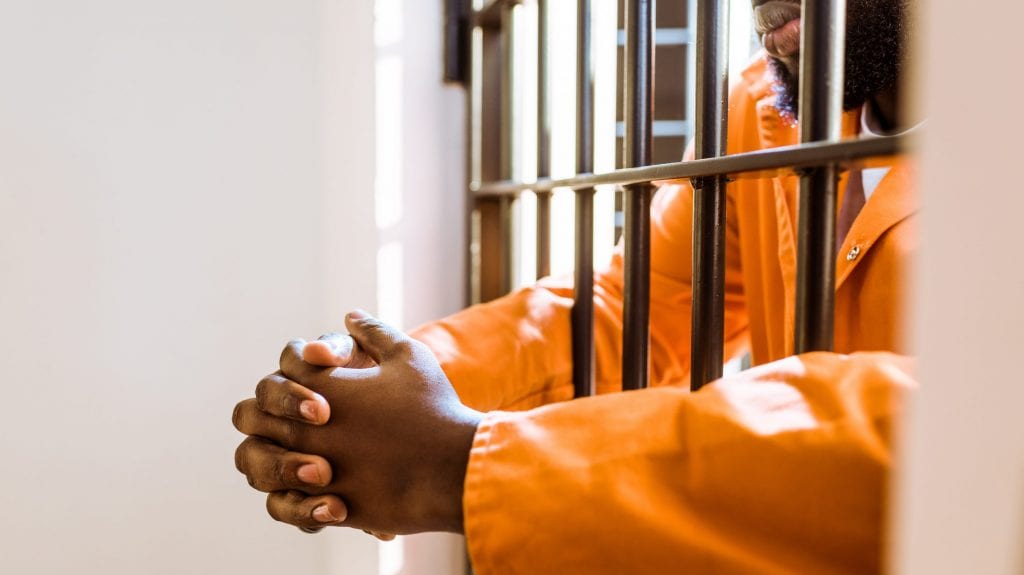Mass incarceration is causing Black communities to lose billions in earnings
In New York alone, Black and Brown communities lose more than $1B in earnings per year due to mass incarceration, study finds
Formerly incarcerated Black and Brown populations in New York — a state with one of the country’s largest prison infrastructures — lose more than $1.6 billion per year, according to a new report from the Brennan Center for Justice.

More than 330,000 people in New York State have been imprisoned at some point in their lives. Of that population, 145,800 are Black, and as a group, they lose $889.5 million in annual earnings; 104,600 are Latino and as a group, they lose $749.9 million in annual earnings. “If you look at communities that have been disproportionately impacted by mass incarceration, you see disinvestment on the social service side and massive investment in incarcerating people,” Ames Grawert, senior counsel, and John L. Neu, Justice Counsel at the Brennan Center for Justice told theGrio.
“It’s not just that so many government resources go to incarceration rather than other social services. It’s that when people leave prison and come home to the communities, they’re also saddled with the permanent or semi-permanent burden of a criminal record, and that can translate to long-term difficulty finding a job.”
Read More: Maxine Waters introduces bill to end bias against job applicants with criminal records

The loss of earnings per year for the formerly incarcerated population is significant from an economic standpoint, but also advocates say it highlights a larger issue regarding the justice system — the reentry process needs a stimulus plan of its own.
“Reentry is really complicated and there are a lot of elements of reentry that block people’s access to work and often unseen ways,” said Kemi Role, director of work equity at the National Employment Law Project.
Members of the justice system and elected officials maintain redemption is achievable for those reentering the public following their time served, but advocates feel the application process to enter the workforce remains limited and lacks necessary support systems that take into account the unique experiences of the formerly incarcerated population.
Read More: Incarcerated Black women face numerous issues in COVID-19 pandemic

“We’re good at extracting folks, punishing them and then putting them back out to society with all these hurdles and saying, ‘okay, now go forward and be successful,’ when the system has basically neutered you and greatly disrupted your ability to do that,” said Keith Wallington, state-based strategist at the Justice Policy Center.
One aspect of reentry that can stop an individual’s application process before they even seek an opportunity is the difficulty many experience securing documentation. Khalil Cumberbatch, who is a senior fellow at Council on Criminal Justice, highlighted this issue as a reality many in the state experience as they approach their release dates.
“The irony of all ironies is when you leave prison, although that is a state department and they give you an ID, that ID is worth absolutely zero points when you go to the DMV, which is another state entity,” Cumberbatch told theGrio.
“For someone who served 15, 20, 25 years and those documents were with a family member who may have passed and things happen over the years and that person doesn’t know where their documents are, all too often that process in and of itself could be tumultuous for someone who had just returned to society.
Read More: St. Louis prison uprising reminds us inmates are being punished during a pandemic
He added, “Everything is on the web, everything is about a smartphone. And they’re just trying to get acclimated to free life on top of having to navigate a very bureaucratic system.”
Some of the other obstacles people face during the reentry can include financial debt owed to the courts, rushing to take a low paying job to fulfill an employment condition of probation or parole, and housing insecurity, which can limit a person’s opportunity to secure a job early in the applicant process.
“It’s very layered how all of these systems work together to essentially make it impossible for especially Black and Brown people with records to advance in terms of wages, to advance in terms of types of work,” Role said.

Insufficient support in the reentry process can challenge the progress a recently released person has made during their time in the system.
“We do a good job of locking folks up. We don’t do a good job of rehabilitating them to make them whole,” Wallington said.
According to Wallington, the billions of dollars drained from Black and Brown communities by mass incarceration seem to facilitate a vicious cycle that maintains prison populations in New York and across the country.

Both Grawert and Wallington contend that the neighborhoods where people are deeply impacted by the justice system are also in need of economic opportunities that can disrupt the flow of people going into the system from the community.
“Poverty is an intergenerational experience. It has real impacts on your children and it has real impacts on those around you as well,” Grawert said. “So what we’re looking at is that the impact of incarceration is such a contributor to poverty as we believe it is, it can have a real long-term impact on community well-being and the well-being of children of that community too.”
In addition to contextualizing the impact of incarceration on earnings and community economics, the Brennen Center proposes reforms aimed at decreasing the flow of people into the system, reducing overly punitive penalties, and providing greater support to those who are formerly incarcerated.
Have you subscribed to theGrio’s podcast “Dear Culture”? Download our newest episodes now!
TheGrio is now on Apple TV, Amazon Fire, and Roku. Download theGrio today!
The post Mass incarceration is causing Black communities to lose billions in earnings appeared first on TheGrio.

